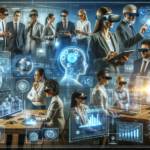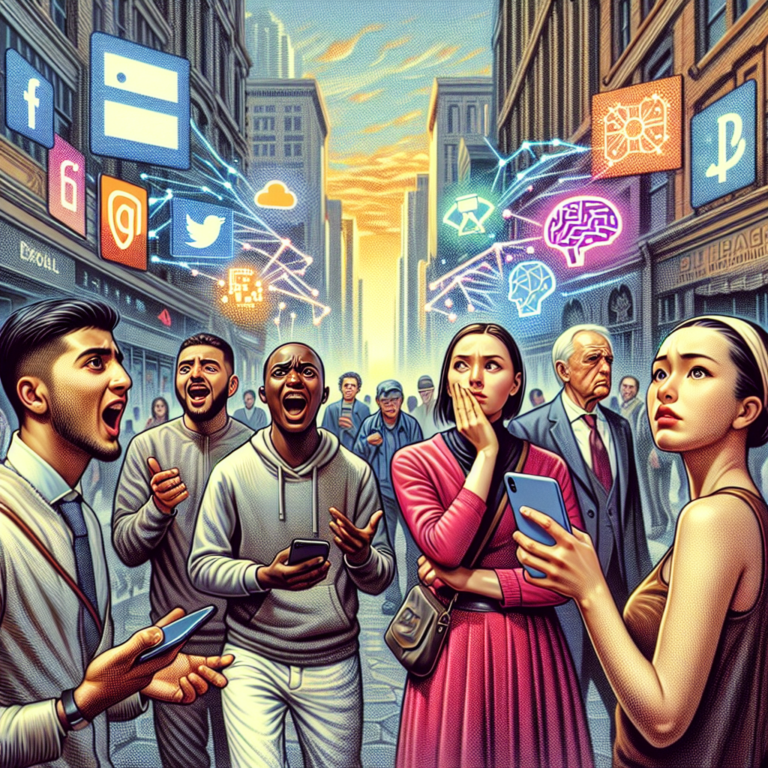Understanding Gen Z’s Complex Attitudes Towards AI 🤖
Introduction to Gen Z and AI
Greetings, tech enthusiasts! This week’s spotlight is on the intriguing perspectives of Generation Z regarding artificial intelligence (AI). Regularly receiving attention in mainstream media, Gen Z’s attitudes towards technology, particularly AI, showcase a mix of excitement and caution.
Survey Insights on Gen Z’s Views of AI
A fascinating survey conducted by Samsung, which surveyed over 5,000 young individuals from France, Germany, Korea, the U.K., and the U.S., revealed insightful data regarding Gen Z’s relationship with AI. The results highlighted the following:
- Almost 70% of Gen Z respondents view AI as a crucial tool for both work and personal tasks.
- They utilize AI for activities such as summing up documents, researching, and brainstorming.
Conflicting Emotions Around AI Usage
Despite the positive reception of AI as a useful resource, there are underlying guilt and concern among Gen Z regarding its implications. A report from EduBirdie unveiled that:
- More than one-third of Gen Z individuals using AI platforms like ChatGPT at work expressed feelings of guilt.
- Concerns were raised about AI potentially diminishing critical thinking abilities and creativity.
The Double-Edged Sword of AI
It is important to recognize the subjective nature of these surveys. While Samsung aims to promote its AI offerings, EduBirdie, a competitor of AI writing tools, has a bias towards showcasing reservations against AI. However, this tension might be indicative of a broader consciousness among Gen Z regarding the ramifications of technological advancement.
Gen Z’s Awareness of AI’s Impact on Society
Additional research from the National Society of High School Scholars provides further evidence of this awareness. Here are some notable points:
- 55% of Gen Z believes that the impact of AI on society over the next decade will be more negative than positive.
- They are particularly worried about the invasion of personal privacy that AI may facilitate.
Economic Influence of Gen Z
Why do these perspectives matter? A report from NielsenIQ suggests that Gen Z is set to become the wealthiest generation in history, with an estimated spending power of $12 trillion by 2030, outpacing baby boomers by 2029. This increasing economic power means that understanding Gen Z’s apprehensions about AI is not merely academic; it has real implications for businesses.
The Business Case for Addressing Generational Concerns
As startups in the AI sector grapple with high operational costs, the overall trend indicates that attempting to alleviate Gen Z’s worries about AI could be a smart move. Here are some reasons why:
- Every dollar counts in the competitive AI market.
- Addressing consumer concerns fosters brand loyalty and trust.
Current AI Developments and News
In light of these mixed feelings, the AI landscape continues to evolve rapidly. Let’s explore some recent developments:
OpenAI and Condé Nast Collaboration
OpenAI has recently partnered with Condé Nast, a renowned publishing company known for its prestigious outlets like The New Yorker and Vogue. This partnership aims to integrate stories from Condé Nast’s portfolio into OpenAI’s ChatGPT platform and enhance the training of its AI on Condé Nast content.
Environmental Considerations of AI Demand
The booming demand for AI services has significant ethical and environmental implications. Reports indicate that water consumption driven by data center operations has surged, particularly in Virginia, which houses the largest concentration of data centers in the world.
AI and Voice Technology Innovations
Recently, tech giants have introduced interesting AI-powered, voice-focused experiences. Innovations like Google’s Gemini Live and OpenAI’s Advanced Voice Mode are paving the way for more realistic and interactive voice engagements.
Political Ramifications of AI-Generated Content
In a controversial instance, former President Donald Trump shared AI-generated images implying endorsements from pop icon Taylor Swift. This incident raises crucial questions about the legality and ethics surrounding AI-generated content in political contexts.
California’s AI Regulatory Landscape
The debate surrounding California’s AI bill, SB 1047, aims to mitigate potential AI-related disasters. Critics, including Congresswoman Nancy Pelosi, argue that the bill is well-intentioned but lacks proper insight into the complexities involved.
Cutting-Edge Research in AI
At the forefront of AI innovation, the Transformer model has emerged as the most influential architecture in generative AI since its inception in 2017 by Google researchers. Its versatility allows for various applications, including text and video generation. Google is now utilizing this technology to enhance music recommendations on YouTube Music, aiming to optimize user engagement through personalized features.
New AI Models on the Horizon
OpenAI’s GPT-4o has recently expanded its capabilities, allowing developers to fine-tune the model using custom datasets. This feature permits users to tailor the AI’s responses to better align with specific requirements, offering a more personalized experience.
Legal and Ethical Challenges in AI
Meanwhile, the conversation surrounding copyright and generative AI continues to escalate. A recent class-action lawsuit against AI company Anthropic accuses it of using pirated materials, highlighting the balancing act between innovation and ethical practices in the field.
Rapid Developments in AI
As AI technology advances, the need for responsible usage and adherence to ethical standards will remain key topics of discussion. Keeping an eye on Gen Z’s complex feelings towards AI will be essential for fostering a healthy relationship between society and technology in the coming years.




0 Comments